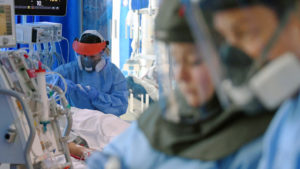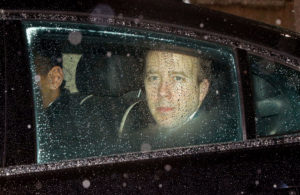A few nights ago, during the graveyard shift in A&E, a colleague sent me a clip from the classic BBC sitcom, Yes, Prime Minister. “The Smoking Ban” episode shows PM Jim Hacker vowing to take on the tobacco lobby — something his Cabinet Secretary, Sir Humphrey Appleby, says “no man in his right mind could possibly contemplate”. When Hacker, quoting from a medical report, explains that smoking-related diseases cost the NHS £165 million a year, Sir Humphrey puts forward the case for tobacco tax revenue:
“It has been shown that if those extra 100,000 people had lived to a ripe old age, they would’ve cost us even more in pensions and social security than they did in medical treatment. So financially speaking, it’s unquestionably better that they continue to die at about the present rate!”
Anyone who’s worked in the National Health Service for more than a few months would, depressingly, recognise this kind of equation.
Those episodes were first broadcast in 1986, when the tobacco tax generated £4 billion in revenue for the government and smoking-related diseases did indeed cost the NHS £165 million a year. Last year, the tobacco tax raised £8.7 billion for the government — but smoking-related illnesses cost the UK healthcare system £2.5 billion per annum. Nevertheless, a smoking ban has never been seriously considered. Behind the gallows humour at the heart of Yes, Prime Minister lies a bleak fact: the state is happy to kill off the weak to balance the books, or even make a profit.
This cavalier attitude to death rather defined the Government’s attitude to the pandemic, as it spread through hospitals and was encouraged into care homes, pushing the NHS to breaking point. In hospitals, we’re battling it still. When Omicron started spreading at the end of last year, we were told it wasn’t as dangerous as previous variants — but that might just have been because patients and the public were more vigilant. Now, vigilance has waned. With most Covid mitigation measures nothing but a memory, hospitalisations could spiral out of control again. And it’s now predicted that, because of a lack of exposure during lockdown, flu deaths will be very high this year. This winter, according to The Lancet the return of influenza as a major public health issue appears “inevitable”.
Then factor in the cost of living crisis. People are not going to be able to heat their homes. People are not going to be able to put food on their tables. People are not going to be able to put fuel in their vehicles to go to work to earn money. People are not able to afford prescriptions. People are going to have to choose whether to feed themselves or their children. Isolated, vulnerable people are going to be more isolated and more vulnerable. Abused people are going to be more abused.
Emergency departments throughout the country are starting to seem Dickensian. I routinely see patients admitted with combinations of multiple problems: severe respiratory illness, loss of sphincteric function, terrible hygiene and general self-neglect. Paramedics are having to wear specialist kit to cope with lice, scabies and faecal matter — and incinerate patient property in keeping with protocols.
All of this will put immense pressure on the NHS — which is in a terrible position to deal with any of it. After a recent bout of Covid (yes, even doctors get it) left me utterly drained, I dragged myself into my department because — like the rest of the NHS — it is suffering from unprecedented staff shortages. A staggering 40,000 nurses have quit in the past year, many due to stress and poor pay. (Those remaining are deciding whether to strike.) Resignation rates far outstrip recruitment. Sick leave, meanwhile, is running at an all-time high, with some 60,000 healthcare and social care staff suffering from Long Covid. Working conditions for those working are verging on untenable.
The A&E department where I work is representative, in that it is falling apart. Ambulances get stuck outside for hours. There is no patient flow, and therefore no capacity; there are not enough GP appointments, so problems aren’t treated early and people show up on our doorstep far more seriously ill; and there is a dearth of community services. In the past two years — since before the second lockdown — I have seen more severe cases than in the rest of my career. Recently, I had a patient who had telephoned his GP complaining of a sore arm, which was thought to be a muscular or skeletal problem. In fact, the man had been suffering from angina, and the sore arm was referred pain. The situation soon escalated: he had a massive heart attack. We worked on him in A&E, but to no avail. Had the patient had a face-to-face consultation with his GP, things may well have been different.
This summer, we experienced “excess” non-Covid deaths in the region of 1,000 a week in England and Wales — in other words, far more deaths than would usually be expected for the period. Many of them, it seems, were related to lung, heart and circulatory diseases. Research by The Kings Fund healthcare charity revealed that the pandemic era has seen life expectancy in the UK fall by a magnitude that “has not been seen since World War II”. Second only to the US, the UK’s pre-pandemic life expectancy was lower than in many comparative countries for males, lowest for females. In the first 12 months of the pandemic, it fell by over a year for the former, and just under a year for the latter.
If deaths this summer were way beyond the average, the prognosis for this winter is bleak, given this lethal cocktail of health and socio-economic issues. According to the Government’s own research, for yet another week, “statistically significant excess all-cause mortality by week of death was observed overall in England” — and autumn has only just begun. The nation is about to be plunged into a winter during which people can’t protect themselves, comfort themselves, warm themselves or feed themselves.
Our hopes rest on a new Health and Social Care Minister, Thérèse Coffey. She is, it’s said, in “listening mode”. She has already made remarks that sound great. Everyone is going to be able to see a GP within two weeks, she says, without explaining exactly how she’ll achieve this. (Currently, some people are unable to see a GP at all.) Coffey has also said that nurses won’t get a pay rise. In fact, she’s advocated working for no money at all, unabashedly calling for a “national endeavour” to support the NHS, which “includes encouraging more volunteering across the health service”.
Coffey has proposed tweaks to the NHS pension rules to “allow” retired staff (who are probably well shot of the health service) to return to work if they want to (why would they?). But why the focus on clinicians at the end of their careers? The General Medical Council (GMC) is reporting that two-thirds of junior doctors are “worn out” at the end of a working day and morale among trainee nurses is at an all-time low. Coffey’s plan should throw them a lifeline; instead, it doesn’t mention them. Our healthcare system is dreadful and dilapidated because of this government’s failure to invest — not only financially but also in terms of the time and brainpower needed to sort out the situation — and the same Government is still failing to do anything meaningful about it.
The cherry on top is the fact that Coffey seems poised to bin its plan to tackle smoking. It is no coincidence, perhaps, that she herself smokes. We live in a world in which “optics” matter — particularly in the socio-political sphere — and Coffey, like Jim Hacker’s chain-smoking, tobacco-lobbying health minister, aren’t good. She’s obese. She drinks. She’s known to be cosy with the tobacco industry. And she’s anti-abortion.
Still, there are signs that somebody, somewhere in Coffey’s department, understands the most pressing challenge facing departments like mine: one of the priorities in what has been titled “Our plan for patients” is the Adult Social Care Discharge Fund, the aim of which is essentially to free up beds. In my region, we can’t seem to get any patients out the hospital and into social care — because there is no social care. If Mrs Smith on ward seven has her pneumonia treated quickly, and she turns the corner beautifully, and she’s off supplemental oxygen and on oral antibiotics, and all the paperwork has been filled out by the junior doctors for the social care assessment — all that happens is she gets into the queue for social care quicker. The queue gets ever-longer. Mrs Smith remains in hospital.
It is hard for hospital managers and clinicians to remain motivated in the face of this absurdity. Making things more efficient within the hospital doesn’t actually speed up the process of getting patients out of hospital. It just gets them onto these waiting lists quicker.
Even the best British satirists might struggle to lampoon it, so dark is our current situation. The other night, while I was on call, the sister in charge let slip that only one or two beds in the emergency department would free up that evening. This is a continual problem where I work: the number of beds available in any given 24-hour period is always far outnumbered by the number of patients requiring clinical admission. Allocation is a simple mathematical equation. On this occasion, the sister followed up her update with another: “We’re expecting a couple of deaths…”
In other words, the only way we can get new patients into our emergency department — and the only way we can get existing patients into the community — is if people die. This health “target” unsurprisingly doesn’t get openly discussed. But it’s there, nonetheless, in the back of management’s collective mind, reminiscent of Sir Humphrey declaring, “it’s unquestionably better that they continue to die!”
If this is the NHS’s new normal, and the Secretary for Health and Social Care is happy to accept it, then that’s a sad indictment of her stewardship. But her party sets the tone. We’ve been here before with this government: in April 2021, Boris Johnson said he would rather see “bodies pile high” than take the UK into a third lockdown. The UK currently has a body count of 205,000 Covid-19 deaths, and the Tories seem all too comfortable with this — which doesn’t bode well for the coming winter.
Without adequate support from the Government, the NHS will be forced to keep relying on a shameful, unofficial “beds for death” policy. Staff shortages will snowball. The new generation of clinicians is already battling with severe financial and mental health issues. And they’re not stupid: they know exactly what their employers are depending on, to free up beds. That these young people are trained, pressurised, and ultimately programmed to operate within an NHS that relies on human misery to create capacity is yet another sign of a healthcare system at breaking point. To make a dent in these systemic problems, the service urgently needs money and personnel — not a spate of excess deaths.
Disclaimer
Some of the posts we share are controversial and we do not necessarily agree with them in the whole extend. Sometimes we agree with the content or part of it but we do not agree with the narration or language. Nevertheless we find them somehow interesting, valuable and/or informative or we share them, because we strongly believe in freedom of speech, free press and journalism. We strongly encourage you to have a critical approach to all the content, do your own research and analysis to build your own opinion.
We would be glad to have your feedback.
Source: UnHerd Read the original article here: https://unherd.com/





